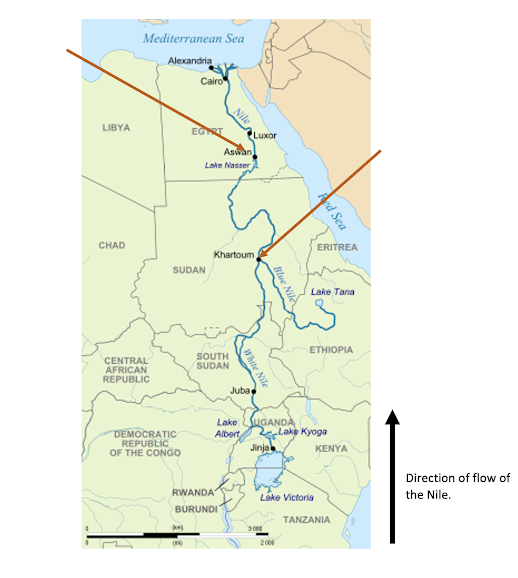The Question of Water Provision in Lagos, Nigeria
"Water is a basic human right."
Figure 1.
Source: TVC News Nigeria, October 2022.
Modern development discourse has shifted to see privatisation as the solution to water provision. In this short blog post, I would like to look at some narratives of privatisation in Nigeria, looking first at a news report by TVC News Nigeria.
The video above demonstrates one side of the privatisation debate. Activists in Lagos, as well as members of the NGO 'Corporate Accountability and Public Participation Africa' (CAPPA), suggest that the privatisation of water provision in the city will have severe consequences for their livelihoods. Where less than 40% of the city have access to water, water here again serves as a divisive tool, with the poor set to suffer disproportionately from privatisation. These activists seek to protect the vulnerable communities that may not have the political voice to protect themselves, with questions of power and governance embedded within the video. The residents of Lagos look to their government to challenge the power of corporations, assigning negative value to the idea of monopolisation, stating 'they are looking to take over Africa's water.' Using language like 'necessity of life', 'hygiene' and 'menstruation', the activists emphasise water should not be political. It is a human right. They seek to overcome the politicisation of water provision. Their aim is the unequivocal, welfare-focused bettering of water provision in Lagos.
'By its very nature, providing WSS [water supply and sewerage] services is a natural monopoly... Whether those assets are publicly or privately owned, the owner is in a monopoly position.'
On the other side of the privatisation debate, with reference to the ideas of Hukka and Katko (2003), we must understand that the concept of water provision in itself is set up for monopolisation. Whilst I stand with the belief that corporate power, which does not widely benefit all people, should be limited, we should also be wary of assuming that nationalisation is the solution. Governments may also form monopolies, thus with water provision, advocates for privatisation argue that a lack of competition within the public sector results in high prices and low efficiency. Whilst I must acknowledge that I make this observation from the outside looking in, we may potentially argue that this lack of efficiency can be currently observed in the case of Lagos' water provision.
Figure 2.
We can look next at an article released by The Guardian in 2015, which also speaks on the issue of water privatisation in Nigeria. The article highlights the struggles of reaching a solution to water provision in Lagos, suggesting that foreign actors, looking to partner with local authorities, left after being unable to reach an agreement with local government as to sourcing finance, satisfying corporate demands and the persuasion of the Nigerian public. Privatisation thus appears like a multifaceted, and unachievable, strategy. Furthermore, Corporate Accountability International, another NGO involved in the water debate, reiterates again issues of exploitation and inequality stating, 'it is clear that PPPs [Public-Private Partnerships] in the water sector boost corporate profits at the expense of people'. Whilst the article also agrees that privatisation may not be the way forward, it rather suggests a form of collaboration between a more 'developed' Western country, and Nigeria, in forming a better water provision solution. Framing the idea as a 'Public-Public Partnership', the article summarises it as an exchange of knowledge, technologies and experiences, likening it to Amsterdam's work with many cities in Morocco. I am wary of this concept, as we must be careful of assuming the classic Western narrative, thinking in some way that development is a linear and replicable goal, in which we (the West) are the great example. Throughout all discussions of development and water, we must remember that development is not an end point, it is a process. There is no right, or wrong, way to development.
So, on that note, we are left with the question of privatisation, nationalisation, or something in the middle? I'm unsure if we will ever find a universal solution to water provision, to be honest nor do I think we should. Matters of water are highly contextual. But, I believe water is a basic human right, and alongside the activists in Lagos, I believe provision should separated from the political. Our united aim should be to ensure universal access to safe, reliable water.


Comments
Post a Comment